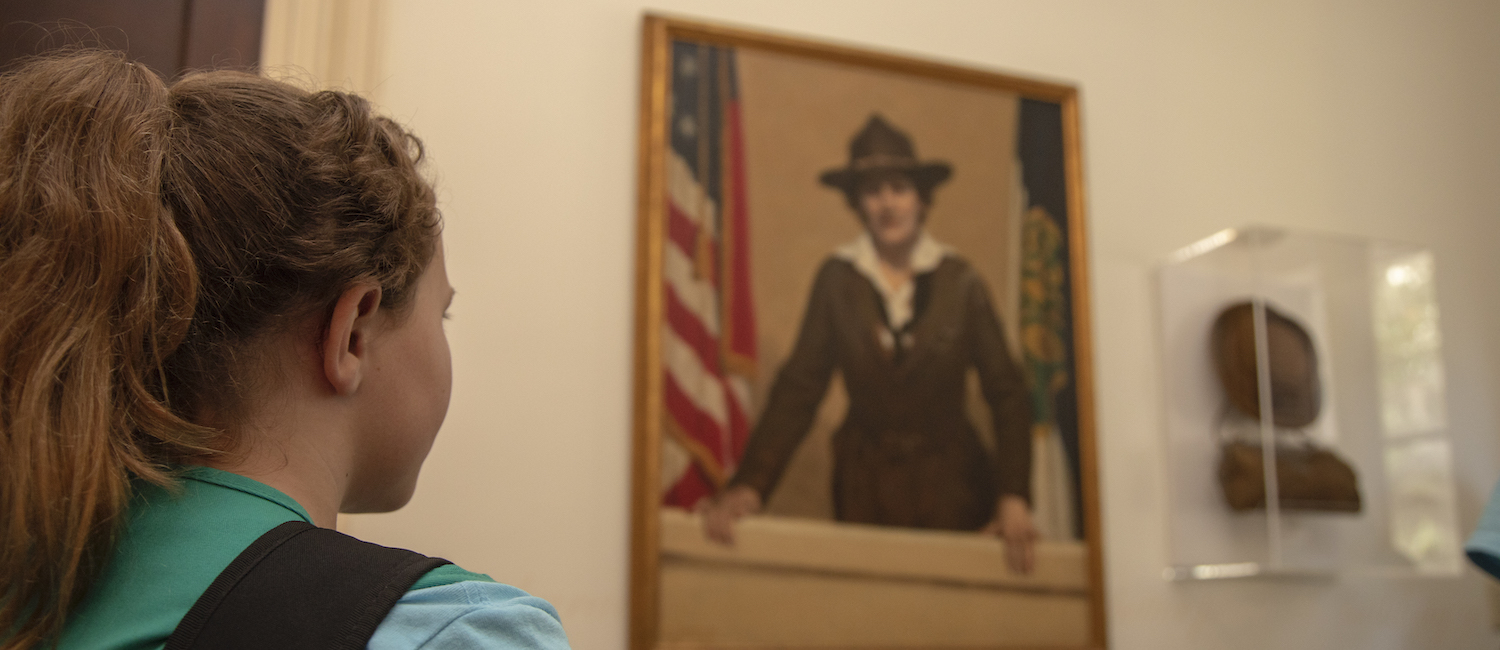
Daisy blazed a trail for every Girl Scout and living a life of courage, confidence, and character.
Juliette Gordon Low (1860–1927), also affectionately known by her nickname “Daisy,” founded Girl Scouts of the USA in 1912. She imagined a movement where all girls could come together and embrace their unique strengths and passions—and as Girl Scouts has done since, she made that dream a reality.
And though Daisy might not recognize the Digital Photography or Cybersecurity badges that Girl Scouts earn today, she strongly believed that everything Girl Scouts do should unlock their full potential and raise their confidence—a powerful legacy that still feels relevant to all Girl Scouts, past and present. Girl Scouts today still share plenty of similarities with the very first Girl Scout troop in 1912: they connect with their communities, get outdoors, challenge themselves, and find ways to make the world a better place.
Early Life 

Birth of a Movement 

An Enduring Legacy 

A Timeline of Honors 


Juliette Gordon Low Birthplace
Connecting the past to the present, the Birthplace is where Girl Scouts of all ages can discover that anything is possible.
VISIT NOW